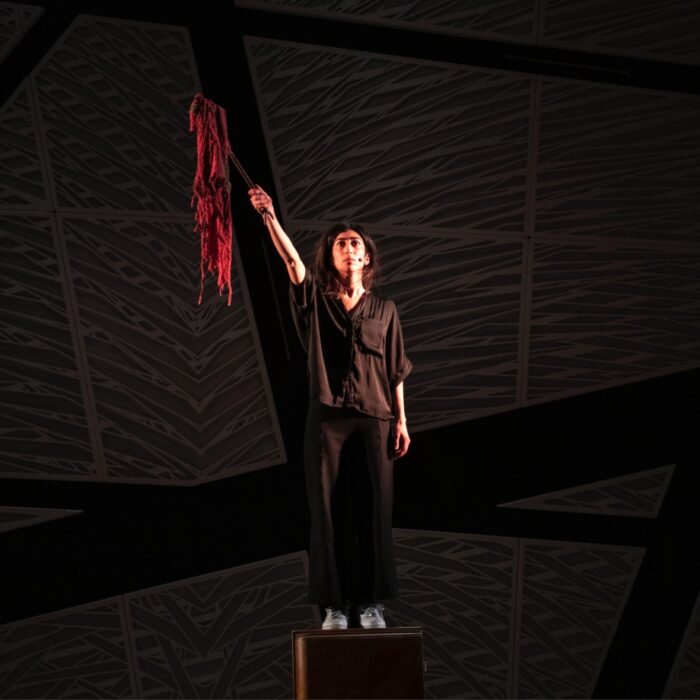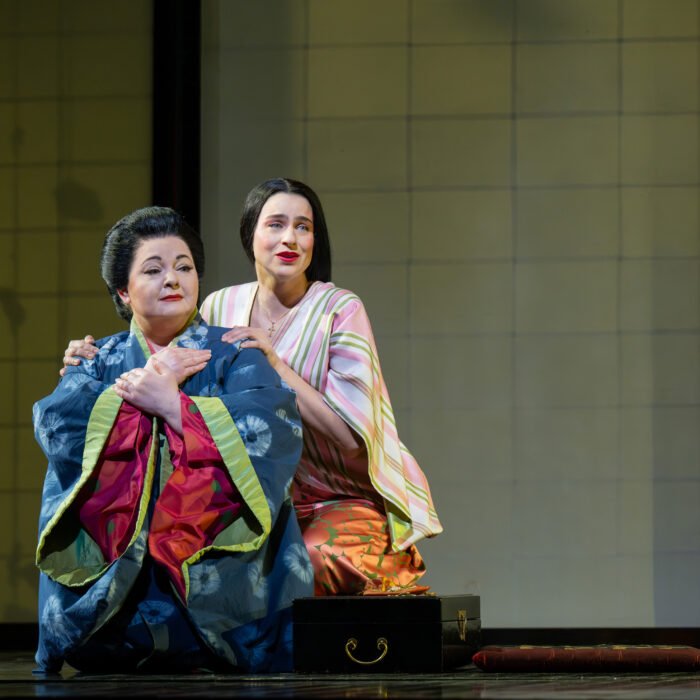
Festival d’Aix-en-Provence 2023 Review: Pretty Yende in Recital
By João Marcos Copertino(Photo credit: Festival d’Aix-en-Provence © Vincent Beaume)
In an arbored patio, Pretty Yende, ethereally sings the final terzett of the last Petrarch sonnet by Liszt, “ed era il cielo a l’armonia sí intento,” “che non se vedea in ramo mover foglia,” “tanta dolcezza avea pien l’aere e ’l vento.” (“and heaven so intent upon the harmony, no leaf was seen to move on the boughs, so filled with sweetness were the wind and air.”) In the midst of a laconic fermata, just between “avea pien” and “l’aere e ‘l vento,” a dry leaf fell onto the stage. It was a very dramatic, slow-motion fall. Yende, without ever losing her poise, smiled and almost sighed. It could not have been otherwise.
Was it a sign that nature heard her singing? If so, was it irony or a compliment?
Soloist recitals are extremely hard to dislike. Singers, and their pianists, often know best how to construct repertoire that fits their personality and voice. When the singer is Pretty Yende, making her debut in an open-air recital at Aix-en-Provence, the ticket already guarantees that one will have a good time. Yende is competent and professional. It is impossible not to enjoy her art. And still, her recital with Nadine Sierra at the Philharmonie in Paris last spring tested my nerves. They sang well, as always, but with a tacky style that only pleased the most philistine in the Parisian audience.
This time, in Aix, things were different and so was the audience.
Reaching the Summit
When the dry leaf fell onto the stage, Yende knew quite well that her control had reached its summit, and that her Liszt was as good as it gets. Yende sang with the most sinuous phrasing. Her approach is not so much that of Petrarch himself, but that of an ingenue muse who progressively shows more wisdom about the poem than the poet himself. In her approach to the sonnets, Yende empties each song of any urgency or anxiety and fills it with the peaceful and wise contemplation of Nature and Love. Her phrases are never too loud, and her gestures are never too fast. Everything shows a consciousness of how she is or is not seen by her audience. Nature could not be indifferent, as it sent its signal.
The other songs of the night were, as usual, extremely competently sung. But, they did not have the same excellence as her Liszt. Her Debussy, including all the classics, from “Beau Soir” to “Mandoline,” and “Clair de Lune,” though similarly ethereal, were a bit less legato than usual. They were lacking something of the French language’s fluidity. The Italian songs, including an amazing rendition of Donizetti’s “L’amor funesto,” imprinted itself on my mind. Though an indication of how smart a singer Yende is and how generous a pianist Vanessa Garcia Diepa, it was also clear that Yende was still figuring out the patio acoustics.
I was particularly happy to see the addition of Gerónimo Gimenéz’s songs. Although their function in the night was to lighten the mood, especially after so dense a selection of Liszt, they were undermined to a degree by some difficulties in Yende’s Spanish diction. The soprano has all the tools to speak Spanish and French phonetically right, but Gimenéz’s “La Tempranica” fragments need a little bit more toning in the lower part of the voice in order for the
audience to comprehend the words in the text. Nevertheless, as I said, it was still extremely pleasant to hear.
As an encore, Yende and Garcia played “Una Voca Poco Fa.” This showed all of Yende’s vocal acrobatics. It is rather enjoyable, but such ornamentation also makes me sure that the night has to end.
It was a lovely recital and a great debut at Aix-en-Provence. It was filled with the most tender moments that I ought to not forget, especially when nature answered Petrarch, Liszt, and last but not least, Yende’s call.


